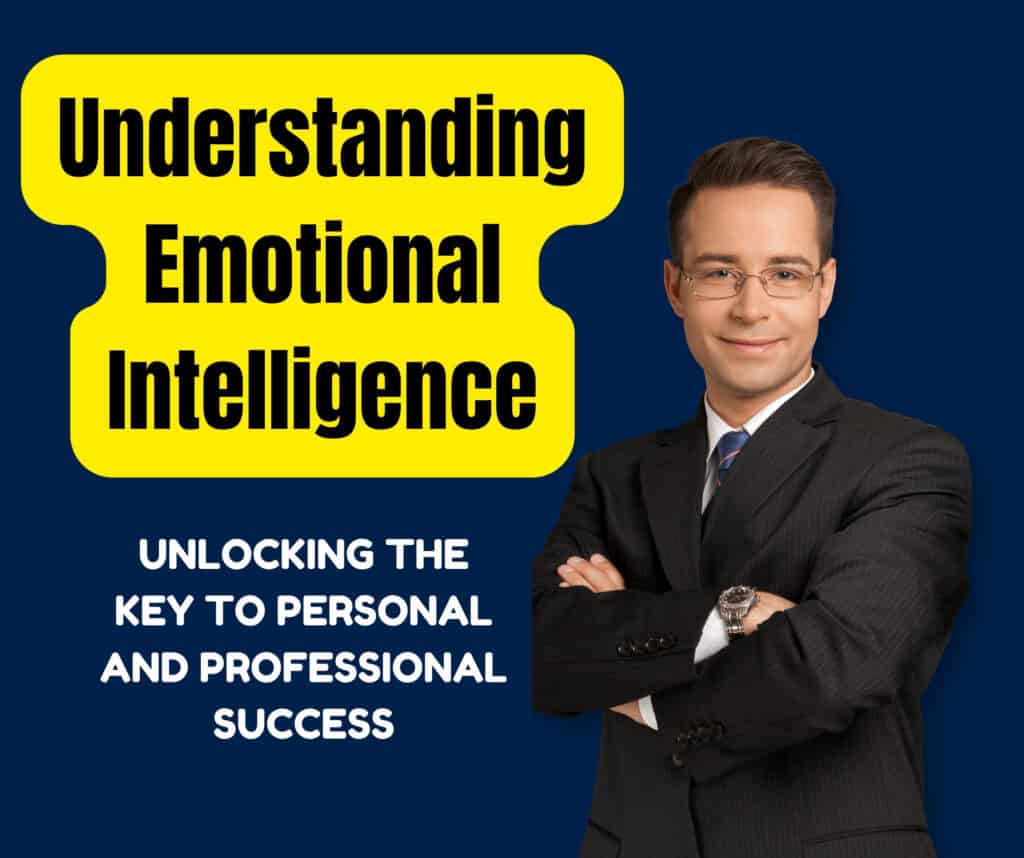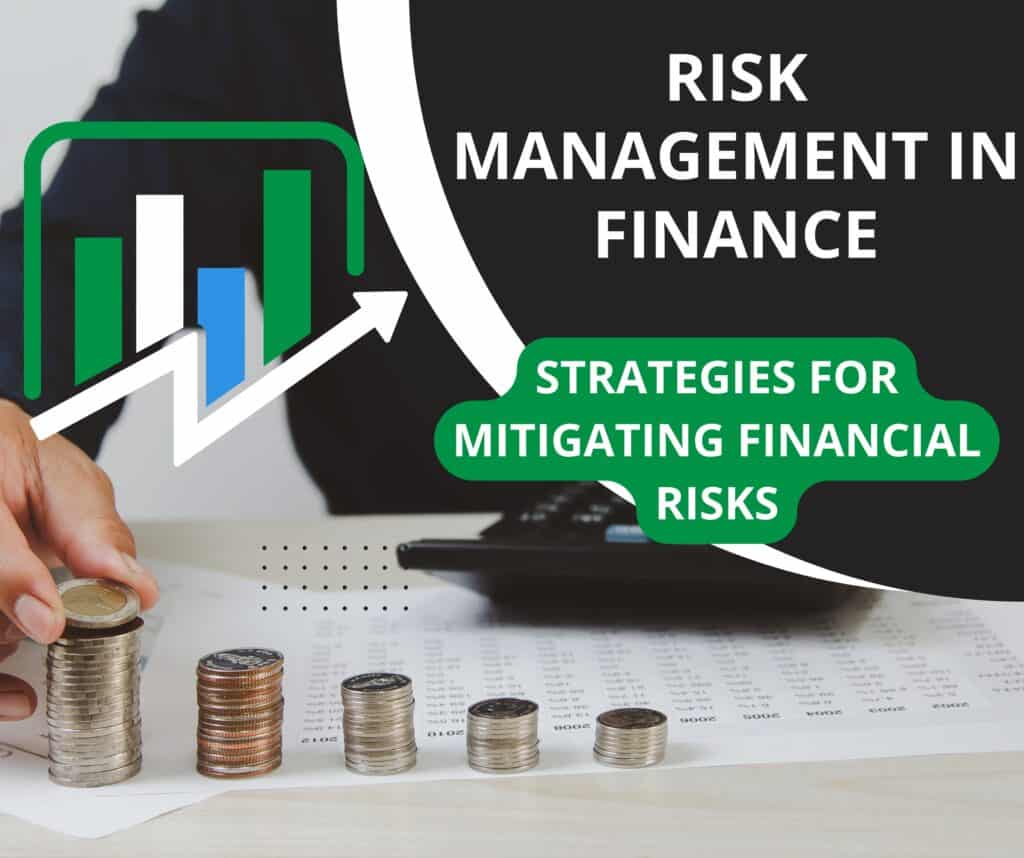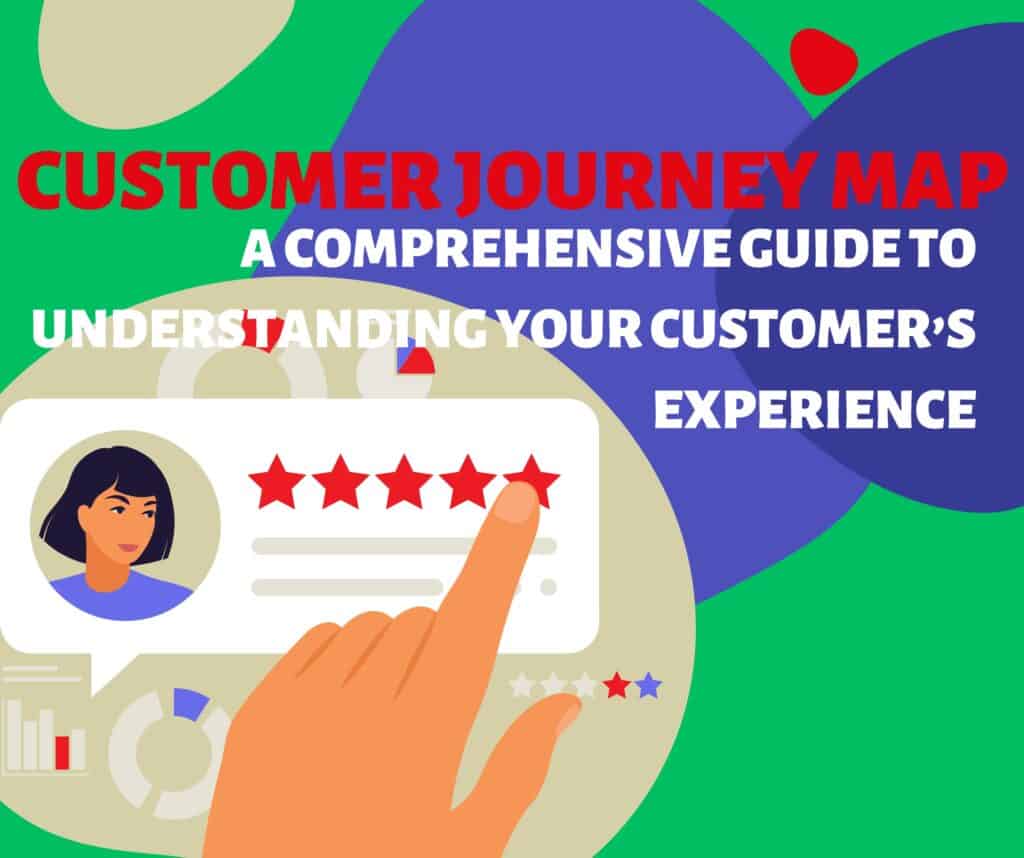Emotional intelligence, often abbreviated as EQ (Emotional Quotient), refers to the ability to recognize, understand, and manage our own emotions, as well as the emotions of others. It encompasses a range of skills and competencies, including self-awareness, emotional regulation, empathy, and effective communication. Unlike traditional intelligence (IQ), which measures cognitive abilities such as problem-solving and analytical thinking, emotional intelligence emphasizes the emotional and social skills that contribute to how we interact with others and navigate social complexities.
Brief History and Origin of the Term
The concept of emotional intelligence gained significant attention in the 1990s, although its roots can be traced back to earlier psychological theories. Psychologist Daniel Goleman popularized the term with his groundbreaking book, Emotional Intelligence: Why It Can Matter More Than IQ, published in 1995. Goleman argued that emotional intelligence is a crucial factor in personal and professional success, challenging the long-held belief that IQ alone determines one’s potential. His work built on earlier research by psychologists such as Peter Salovey and John D. Mayer, who defined emotional intelligence in a more academic context as the ability to process emotional information and use it effectively in reasoning and problem-solving.
Importance of Emotional Intelligence in Today’s World
In our increasingly complex and interconnected world, emotional intelligence has become more vital than ever. Here are some reasons why EQ is essential:
- Enhancing Relationships: High emotional intelligence fosters better relationships both personally and professionally. Individuals with strong EQ can empathize with others, resolve conflicts effectively, and communicate their feelings in a constructive manner.
- Improving Leadership Skills: Leaders with high emotional intelligence can inspire and motivate their teams, manage stress, and navigate challenges with resilience. They are better equipped to understand their team members’ needs and respond appropriately, creating a supportive work environment.
- Boosting Mental Health: Emotional intelligence contributes to better mental health by enabling individuals to cope with stress and emotional challenges. Recognizing and regulating one’s emotions can lead to decreased anxiety, improved mood, and overall psychological well-being.
- Driving Performance and Success: In both personal and professional settings, emotional intelligence can enhance performance. Individuals with high EQ are often more adaptable, better decision-makers, and able to work collaboratively, leading to increased productivity and success.
- Fostering Inclusivity: In today’s diverse workplaces and communities, emotional intelligence plays a crucial role in promoting inclusivity and understanding. By valuing different perspectives and experiences, emotionally intelligent individuals can create environments that respect and celebrate diversity.
The key to success is starting. Click here to start your business today!
Try Wealthy Affiliate (For Free).
The Components of Emotional Intelligence
Emotional intelligence consists of five key components: self-awareness, self-regulation, motivation, empathy, and social skills. Each component plays a crucial role in how we understand and interact with ourselves and others.
Self-Awareness
Self-awareness is the foundation of emotional intelligence. It involves recognizing and understanding one’s emotions, strengths, weaknesses, values, and drives.
- Recognizing Your Emotions: Self-aware individuals can identify their feelings in real-time. This awareness allows them to better understand what they are experiencing, whether it’s joy, anger, sadness, or anxiety. For example, when feeling frustrated, a self-aware person can acknowledge that emotion instead of suppressing it.
- Understanding How Your Emotions Affect Your Thoughts and Behavior: Self-awareness goes beyond simply recognizing emotions; it includes understanding how these feelings influence thoughts and actions. For instance, someone who feels anxious before a presentation may realize that their nerves could lead to avoidance behaviors or a lack of preparation. By recognizing this pattern, they can take proactive steps to manage their anxiety.
Self-Regulation
Self-regulation is the ability to manage and control one’s emotions, especially in stressful situations. It allows individuals to respond thoughtfully rather than react impulsively.
- Managing Emotions in Healthy Ways: Self-regulation involves channeling emotions in constructive ways. For example, instead of lashing out when angry, a person might take a deep breath and express their feelings calmly, which fosters healthier interactions.
- Controlling Impulsive Feelings and Behaviors: Individuals with high self-regulation can resist the urge to act on negative emotions. This control helps in making better decisions and maintaining professionalism in challenging situations. For instance, rather than snapping at a colleague during a disagreement, they might take a moment to pause and reflect before responding.
Motivation
Motivation within the context of emotional intelligence refers to the intrinsic drive to pursue goals for personal satisfaction rather than external rewards.
- Internal Motivation vs. External Motivation: People with high emotional intelligence are often driven by internal factors, such as personal values, passion for their work, or the desire for self-improvement. In contrast, external motivation relies on outside rewards, such as praise or financial gain. While both types of motivation can be effective, internal motivation tends to lead to more sustained engagement and fulfillment.
- The Role of Optimism in Emotional Intelligence: Optimism is a key aspect of motivation. An optimistic person is more likely to approach challenges with a positive mindset, viewing setbacks as opportunities for growth rather than insurmountable obstacles. This positive outlook can enhance resilience and encourage persistence in the face of adversity.
Empathy
Empathy is the ability to understand and share the feelings of others. It is a critical component of emotional intelligence, fostering deeper connections and stronger relationships.
- Understanding the Emotions of Others: Empathetic individuals can recognize the emotions of those around them, even if those feelings are not explicitly expressed. This skill enables them to respond appropriately and sensitively to others’ needs and concerns. For instance, a manager who notices that a team member seems withdrawn may reach out to offer support, demonstrating care and understanding.
- The Significance of Empathy in Relationships: Empathy strengthens interpersonal relationships by promoting trust and rapport. When individuals feel understood and validated, they are more likely to communicate openly and collaborate effectively. In personal relationships, empathy fosters emotional closeness, while in professional settings, it enhances teamwork and collaboration.
Social Skills
Social skills encompass the abilities necessary for effective communication, relationship building, and conflict resolution. These skills are vital for navigating social interactions successfully.
- Building and Maintaining Healthy Relationships: Individuals with strong social skills can establish and maintain positive relationships with others. They are adept at recognizing social cues, engaging in active listening, and expressing themselves clearly. This proficiency fosters a supportive network of relationships, whether in personal or professional settings.
- Effective Communication and Conflict Resolution Skills: Strong social skills include the ability to communicate effectively and manage conflicts constructively. Emotionally intelligent individuals can articulate their thoughts and feelings clearly while being receptive to others’ perspectives. In conflict situations, they can find common ground and negotiate solutions that satisfy all parties involved, reducing tension and promoting collaboration.
The Importance of Emotional Intelligence
Emotional intelligence (EQ) plays a critical role in shaping our personal relationships, professional success, mental health, and overall well-being. Here, we explore the significant ways in which emotional intelligence influences various facets of our lives.
Impact on Personal Relationships
Emotional intelligence is vital for nurturing and maintaining healthy personal relationships. High EQ allows individuals to connect more deeply with others, fostering mutual understanding and respect.
- Enhanced Communication: Individuals with high emotional intelligence are better equipped to express their thoughts and feelings clearly and respectfully. This clarity reduces misunderstandings and fosters open dialogue, which is essential for building trust in relationships.
- Conflict Resolution: EQ enables people to approach conflicts with a calm demeanor, allowing for constructive discussions rather than heated arguments. Those skilled in emotional intelligence can navigate disagreements while maintaining empathy and respect, which strengthens relationships over time.
- Emotional Support: People with high EQ are often more attuned to the emotional needs of their friends and family. Their ability to empathize and provide support creates a safe environment where loved ones feel understood and valued.
Role in Professional Success
Emotional intelligence significantly influences professional success, impacting how individuals interact with colleagues, handle stress, and navigate workplace dynamics.
- Leadership and Teamwork: Effective leaders typically exhibit high emotional intelligence. They inspire and motivate their teams, understand the strengths and weaknesses of team members, and foster a positive work environment. This ability to connect with others enhances teamwork and collaboration, leading to more successful projects and initiatives.
- Job Performance and Career Advancement: Research shows that emotional intelligence correlates positively with job performance across various roles and industries. Employees who can manage their emotions effectively and understand the emotions of others are more likely to excel in their positions, leading to increased opportunities for career advancement.
- Adaptability and Resilience: Emotionally intelligent individuals can adapt to changing circumstances and recover from setbacks more easily. This resilience is crucial in today’s fast-paced work environment, where challenges are common and the ability to pivot is essential for success.
Connection to Mental Health and Well-Being
Emotional intelligence is closely linked to mental health and overall well-being, influencing how individuals cope with stress, anxiety, and other emotional challenges.
- Stress Management: Individuals with high EQ can recognize their emotional triggers and employ effective coping strategies to manage stress. By understanding their feelings and responding thoughtfully, they can avoid becoming overwhelmed and maintain a sense of balance.
- Improved Self-Regulation: High emotional intelligence promotes self-regulation, allowing individuals to manage their emotions and reactions. This skill is crucial for preventing emotional outbursts and maintaining composure in difficult situations, contributing to better mental health.
- Increased Life Satisfaction: People with high emotional intelligence tend to experience greater life satisfaction and overall happiness. Their ability to cultivate meaningful relationships, manage their emotions, and navigate challenges positively influences their outlook on life.
- Prevention of Mental Health Issues: By fostering resilience and adaptive coping mechanisms, emotional intelligence can play a protective role against mental health issues such as anxiety and depression. Those who understand and manage their emotions are better equipped to seek help when needed and maintain a healthy emotional balance.
Disclosure: This post contains affiliate links. If you make a purchase, I may earn a commission. However, these links offer free resources to help you succeed online.
Try Wealthy Affiliate (For Free).
How to Improve Your Emotional Intelligence
Improving emotional intelligence is a valuable endeavor that can lead to greater success in personal relationships and professional environments. Here are several strategies to enhance your EQ through self-reflection, self-regulation, empathy development, and social skills building.
Practicing Self-Reflection
Self-reflection is crucial for increasing self-awareness, one of the core components of emotional intelligence. By taking the time to reflect on your emotions and behaviors, you can better understand how they impact your thoughts and actions.
- Journaling to Enhance Self-Awareness: Keeping a journal can be an effective way to track your emotions, thoughts, and behaviors over time. Set aside a few minutes each day to write about your experiences, focusing on what you felt and why. Over time, patterns may emerge that reveal how your emotions influence your actions and relationships. This practice helps you recognize triggers, improve emotional understanding, and foster personal growth.
- Seeking Feedback from Others: Don’t hesitate to ask trusted friends, family members, or colleagues for feedback regarding your emotional responses and behaviors. They may provide insights that you might not recognize in yourself, helping you identify areas for improvement. Consider framing your questions around specific situations where you felt challenged or unsure about your emotional responses.
Developing Self-Regulation Techniques
Self-regulation involves managing your emotions and behaviors in a healthy way. Developing techniques to improve this skill can enhance your emotional intelligence significantly.
- Mindfulness and Meditation Practices: Mindfulness involves staying present and fully engaging with the moment. Meditation practices, such as deep breathing, body scans, or guided meditations, can help calm the mind and increase emotional awareness. Regular mindfulness practice allows you to observe your thoughts and feelings without judgment, leading to better emotional regulation over time.
- Techniques for Managing Stress and Emotions: Explore various stress management techniques, such as progressive muscle relaxation, visualization, or physical exercise. Engaging in regular physical activity can release endorphins, reducing stress levels and improving your overall emotional state. Additionally, consider developing coping strategies for when you encounter difficult emotions, such as taking a timeout to collect your thoughts before reacting.
Enhancing Empathy
Empathy is essential for building strong relationships and understanding the feelings of others. Here are some ways to enhance this skill:
- Active Listening Exercises: Practice active listening by giving your full attention to the speaker, maintaining eye contact, and reflecting on what they say. To deepen your understanding, paraphrase their statements to confirm that you’ve grasped their feelings accurately. This not only strengthens your empathetic abilities but also fosters a sense of validation for the speaker.
- Putting Yourself in Others’ Shoes: To enhance empathy, try to see situations from other people’s perspectives. When someone shares their feelings or experiences, take a moment to imagine how you would feel in their position. This practice can help you develop a deeper understanding of their emotions and cultivate compassion.
Building Social Skills
Social skills are crucial for effective communication and relationship building. Here are some strategies to improve your social abilities:
- Joining Social Groups or Clubs: Engaging with new social groups or clubs can provide opportunities to practice your social skills in diverse settings. Participating in activities that interest you, such as book clubs, sports teams, or volunteer organizations, allows you to connect with others and enhance your ability to work collaboratively.
- Practicing Assertiveness and Effective Communication: Assertiveness involves expressing your thoughts and feelings openly while respecting the rights of others. To develop assertiveness, practice using “I” statements to communicate your feelings and needs clearly. For example, instead of saying, “You never listen to me,” try saying, “I feel unheard when you interrupt me.” This approach fosters open dialogue and reduces defensiveness, paving the way for more productive interactions.
Emotional Intelligence in the Workplace
Emotional intelligence (EQ) is not just beneficial in personal settings; it plays a crucial role in professional environments as well. High emotional intelligence can lead to improved teamwork, better leadership, and enhanced organizational performance. Here, we explore the benefits of EQ in the workplace, examine case studies of successful leaders who exemplify high emotional intelligence, and discuss strategies for fostering an emotionally intelligent culture within organizations.
Benefits of EQ in Professional Settings
The presence of emotional intelligence in the workplace can lead to numerous advantages, both for individuals and organizations as a whole:
- Enhanced Team Collaboration: Employees with high emotional intelligence are more adept at understanding and managing their emotions and the emotions of their colleagues. This understanding fosters open communication, reduces conflict, and promotes collaboration, resulting in more effective teamwork.
- Improved Leadership: Leaders with high EQ can motivate and inspire their teams. They are more attuned to the needs and concerns of their employees, which helps in building trust and loyalty. Such leaders are also better equipped to handle crises and navigate change, making them effective guides in turbulent times.
- Increased Employee Engagement: Organizations that prioritize emotional intelligence often experience higher levels of employee engagement. Employees who feel understood and valued are more likely to be motivated and committed to their work, leading to increased productivity and job satisfaction.
- Better Conflict Resolution: Emotional intelligence allows individuals to approach conflicts with empathy and understanding rather than defensiveness. This capability leads to more constructive resolutions, helping maintain positive relationships and a harmonious work environment.
- Higher Job Performance and Retention Rates: Employees with high emotional intelligence tend to perform better in their roles and are more likely to stay with an organization long-term. Their ability to manage stress, communicate effectively, and collaborate well with others contributes to their overall effectiveness and job satisfaction.
Case Studies of Successful Leaders with High Emotional Intelligence
Numerous leaders exemplify how emotional intelligence can drive success within organizations. Here are a couple of notable case studies:
- Satya Nadella (Microsoft): When Satya Nadella became CEO of Microsoft in 2014, he brought a fresh perspective to the company’s culture, emphasizing empathy, collaboration, and a growth mindset. Nadella’s leadership style focuses on listening to employees and understanding their perspectives, which has transformed Microsoft into a more inclusive and innovative organization. Under his guidance, Microsoft has experienced significant growth and improved employee satisfaction.
- Oprah Winfrey (Media Mogul): Oprah Winfrey’s success can be attributed in part to her exceptional emotional intelligence. She is renowned for her ability to connect with people on a deep emotional level, making her an influential figure in media and philanthropy. Winfrey’s empathetic approach allows her to understand her audience and guests, creating an authentic and engaging dialogue. Her leadership has inspired many, making her a role model for emotional intelligence in action.
Strategies for Fostering a Culture of Emotional Intelligence in Organizations
To create a workplace that prioritizes emotional intelligence, organizations can implement several strategies:
- Training and Development Programs: Offer training sessions that focus on developing emotional intelligence skills, such as self-awareness, empathy, and effective communication. Workshops, seminars, and online courses can help employees recognize the value of EQ and provide tools to enhance their emotional intelligence.
- Encouraging Open Communication: Create an environment that promotes open dialogue. Encourage employees to share their thoughts, feelings, and ideas without fear of judgment. Regular check-ins, feedback sessions, and team-building activities can help foster a culture of transparency and trust.
- Implementing Mentorship Programs: Pairing employees with mentors who exemplify high emotional intelligence can provide valuable guidance and support. Mentorship programs can help individuals develop their emotional skills through real-world experiences and personalized feedback.
- Recognizing and Rewarding Emotional Intelligence: Acknowledge and celebrate employees who demonstrate high emotional intelligence in their interactions with colleagues and clients. Recognizing these behaviors reinforces their importance and encourages others to develop similar skills.
- Promoting Work-Life Balance: Organizations should prioritize work-life balance, as it plays a crucial role in employees’ emotional well-being. Flexible work arrangements, mental health resources, and wellness programs can help create a supportive environment that values employees’ overall health.
Emotional Intelligence in Personal Life
Emotional intelligence (EQ) plays a significant role in our personal lives, affecting our relationships with family, friends, and acquaintances. By developing and applying emotional intelligence skills, individuals can foster deeper connections, resolve conflicts more effectively, and enhance their overall well-being. Here, we explore the importance of EQ in family dynamics, enhancing friendships and social connections, and strategies for applying emotional intelligence in daily interactions.
Importance of EQ in Family Dynamics
Family relationships often serve as a foundation for our emotional well-being. High emotional intelligence can positively influence family dynamics in several ways:
- Improved Communication: Families that prioritize emotional intelligence are better equipped to communicate openly and honestly. When family members understand and express their emotions effectively, misunderstandings can be minimized, and deeper connections can be formed.
- Conflict Resolution: Emotional intelligence helps family members navigate conflicts with empathy and understanding. By recognizing and validating each other’s feelings, family members can work through disagreements more constructively, promoting healthier relationships.
- Supportive Environment: Families with high emotional intelligence create an environment where members feel safe expressing their thoughts and feelings. This supportive atmosphere fosters emotional security, encouraging individuals to be vulnerable and seek support when needed.
- Modeling Behavior for Future Generations: Parents and caregivers who demonstrate emotional intelligence can serve as role models for children, teaching them essential skills for managing their emotions and interacting with others. This modeling can help raise emotionally intelligent future generations.
Enhancing Friendships and Social Connections
Emotional intelligence is equally vital in building and maintaining friendships and social connections. Here’s how EQ contributes to stronger relationships:
- Deeper Connections: Friends with high emotional intelligence can relate to one another on a more profound level. By understanding each other’s emotions and experiences, they can build trust and a sense of belonging, leading to more fulfilling friendships.
- Empathy and Support: Empathetic friends are more likely to offer support during difficult times. High EQ allows individuals to understand their friends’ feelings and provide the appropriate emotional support, reinforcing the bond between them.
- Navigating Social Situations: Social interactions can be complex, and emotional intelligence helps individuals read social cues and respond appropriately. This skill enhances the ability to connect with others, making social engagements more enjoyable and meaningful.
- Conflict Management: Friendships may encounter conflicts, and emotional intelligence plays a crucial role in resolving these disputes. Friends who can recognize and manage their emotions are better equipped to discuss disagreements openly and find mutually agreeable solutions.
Strategies for Applying Emotional Intelligence in Daily Interactions
Integrating emotional intelligence into daily life can lead to more positive interactions and relationships. Here are several strategies to apply EQ effectively:
- Practice Active Listening: In conversations, focus on truly hearing what the other person is saying. Avoid interrupting, and ask open-ended questions to encourage them to express their feelings and thoughts more deeply. Reflect back what you’ve heard to show understanding and validate their emotions.
- Cultivate Self-Awareness: Regularly check in with yourself to understand your emotions and how they may affect your interactions with others. Being aware of your feelings can help you respond thoughtfully rather than react impulsively.
- Express Emotions Constructively: Share your feelings with others in a healthy way. Use “I” statements to communicate your emotions, such as “I feel upset when…” This approach promotes open dialogue and reduces defensiveness, leading to more productive conversations.
- Show Empathy in Daily Interactions: Make a conscious effort to consider others’ perspectives in your interactions. When someone shares their experiences, practice empathy by acknowledging their feelings and validating their emotions. Phrases like, “I can understand why you feel that way,” can strengthen your connections.
- Develop Conflict Resolution Skills: When conflicts arise, approach them with a mindset of understanding rather than defensiveness. Focus on finding common ground and solutions that work for both parties. Remain calm, and be willing to compromise to resolve disagreements.
- Engage in Emotional Check-Ins: Regularly check in with family members and friends about their emotional well-being. Simple questions like, “How have you been feeling lately?” can open up valuable conversations and demonstrate your care and support.
Common Misconceptions About Emotional Intelligence
Despite the growing recognition of emotional intelligence (EQ) as a vital skill in personal and professional contexts, several misconceptions persist. Understanding the truth behind these myths is essential for appreciating the full scope of emotional intelligence and its applications. Here, we will clarify some of the most common misconceptions about EQ and discuss why it encompasses more than just being nice.
Clarifying Myths vs. Facts
- Myth 1: Emotional Intelligence is Innate and Unchangeable
- Fact: While some individuals may have a natural predisposition towards emotional intelligence, it is not a fixed trait. Emotional intelligence can be developed and enhanced over time through self-awareness, practice, and learning. With dedication and effort, anyone can improve their EQ skills, making it a valuable focus for personal and professional growth.
- Myth 2: Emotional Intelligence is the Same as Personality
- Fact: Although emotional intelligence and personality traits may overlap, they are distinct concepts. Personality encompasses stable characteristics, such as introversion or extroversion, while emotional intelligence specifically relates to how individuals recognize, understand, and manage their own emotions and the emotions of others. High EQ can manifest in various personality types, meaning that it’s not solely defined by one’s temperament.
- Myth 3: Emotional Intelligence is Just About Being Nice
- Fact: While being kind and empathetic is a component of emotional intelligence, it encompasses much more. Emotional intelligence involves understanding and managing emotions, making informed decisions based on emotional insights, and effectively navigating social complexities. It includes skills such as conflict resolution, emotional regulation, and effective communication. Thus, EQ is about cultivating meaningful relationships, understanding one’s emotions, and responding appropriately in various situations—not merely exhibiting niceness.
- Myth 4: High Emotional Intelligence Means Always Being Happy
- Fact: Individuals with high emotional intelligence experience a full range of emotions, including negative ones like anger, sadness, or frustration. However, they have the skills to manage these emotions effectively. High EQ allows individuals to recognize their feelings, understand their sources, and express them appropriately without being overwhelmed. Thus, having high emotional intelligence does not equate to always being positive or happy; rather, it involves being emotionally aware and resilient.
- Myth 5: Emotional Intelligence is Not as Important as IQ
- Fact: While intelligence quotient (IQ) measures cognitive abilities, emotional intelligence is equally, if not more, important for success in various areas of life. Research has shown that high emotional intelligence contributes to better leadership, improved relationships, enhanced mental health, and greater overall success in personal and professional settings. In many cases, individuals with high EQ outperform those with higher IQs in social interactions and workplace dynamics.
Emotional Intelligence is Not Just About Being Nice
As mentioned earlier, a common misconception is that emotional intelligence is synonymous with being nice or overly agreeable. However, emotional intelligence encompasses a broader range of competencies:
- Understanding and Expressing Emotions: Emotional intelligence involves recognizing one’s emotions and understanding their impact on thoughts and behaviors. This awareness enables individuals to express their feelings authentically and constructively, rather than suppressing them for the sake of being nice.
- Navigating Difficult Conversations: High EQ individuals can engage in tough discussions without resorting to avoidance or aggression. They understand the importance of honesty and transparency, even if it means addressing uncomfortable topics. This ability to confront issues directly can lead to healthier, more genuine relationships.
- Setting Boundaries: Emotional intelligence empowers individuals to establish and communicate their boundaries effectively. It is not solely about pleasing others but ensuring that one’s needs are also respected. This balance is vital for maintaining healthy relationships.
- Empathy Beyond Kindness: While empathy is a core component of emotional intelligence, it involves understanding others’ emotions on a deeper level, even when it means having difficult conversations or providing constructive criticism. High EQ individuals can express compassion while still being honest, fostering authentic connections without sacrificing truthfulness.
- Decision-Making and Accountability: Individuals with high emotional intelligence are capable of making difficult decisions based on emotional insights and the potential impact on others. They understand that sometimes, being nice may not lead to the best outcomes for all involved, and they can approach these situations with empathy and clarity.
Conclusion
In today’s fast-paced and interconnected world, emotional intelligence (EQ) has emerged as a crucial component of personal and professional success. As we have explored throughout this article, emotional intelligence is not merely a trendy concept; it is a foundational skill that can enhance our interactions, improve our relationships, and contribute significantly to our overall well-being.
The path to financial freedom begins here. Click now to start your business!
Try Wealthy Affiliate (For Free).
Recap of the Significance of Emotional Intelligence
Emotional intelligence encompasses a range of competencies, including self-awareness, self-regulation, motivation, empathy, and social skills. These skills enable us to navigate our emotions effectively and understand the emotions of others, fostering stronger connections and healthier interactions. High EQ is associated with numerous benefits, such as improved personal relationships, increased job performance, and better mental health.
Moreover, emotional intelligence is particularly vital in leadership and teamwork, as it encourages collaboration, effective communication, and conflict resolution. In both personal and professional spheres, those who cultivate emotional intelligence are better equipped to face challenges, adapt to change, and foster a positive environment that nurtures growth and resilience.
Investing in the development of emotional intelligence is one of the most valuable commitments you can make for yourself. Unlike cognitive intelligence, which may remain relatively stable, emotional intelligence can be cultivated and enhanced through dedicated practice and reflection. By focusing on building your EQ, you can create meaningful relationships, improve your ability to manage stress and conflict, and enhance your overall quality of life.
Take small, actionable steps to enhance your emotional intelligence. Consider practicing self-reflection through journaling, engaging in active listening during conversations, or seeking feedback from trusted friends and family members. The effort you put into developing your EQ will not only benefit you personally but will also positively impact those around you.
The journey to enhance your emotional intelligence begins with a single step. Start today by assessing your current emotional skills and identifying areas for growth. Set specific goals for yourself, whether it’s improving your self-awareness, developing empathy, or honing your social skills.
Consider exploring resources such as books, workshops, or online courses focused on emotional intelligence to deepen your understanding and practice. Remember, every effort counts, and the rewards of cultivating emotional intelligence can be profound and far-reaching.
Embrace the opportunity to grow, connect, and thrive in both your personal and professional life. The benefits of enhanced emotional intelligence are within your reach—start your journey today!
We’d love to hear from you! How has emotional intelligence impacted your life or relationships? Do you have any experiences, tips, or challenges related to developing your emotional intelligence that you’d like to share? Your insights can help others on their journey toward enhancing their EQ.
If you have questions about emotional intelligence or would like to dive deeper into specific aspects discussed in this article, please leave a comment below. Let’s foster a supportive community where we can learn from one another and grow together. Start the conversation now!







